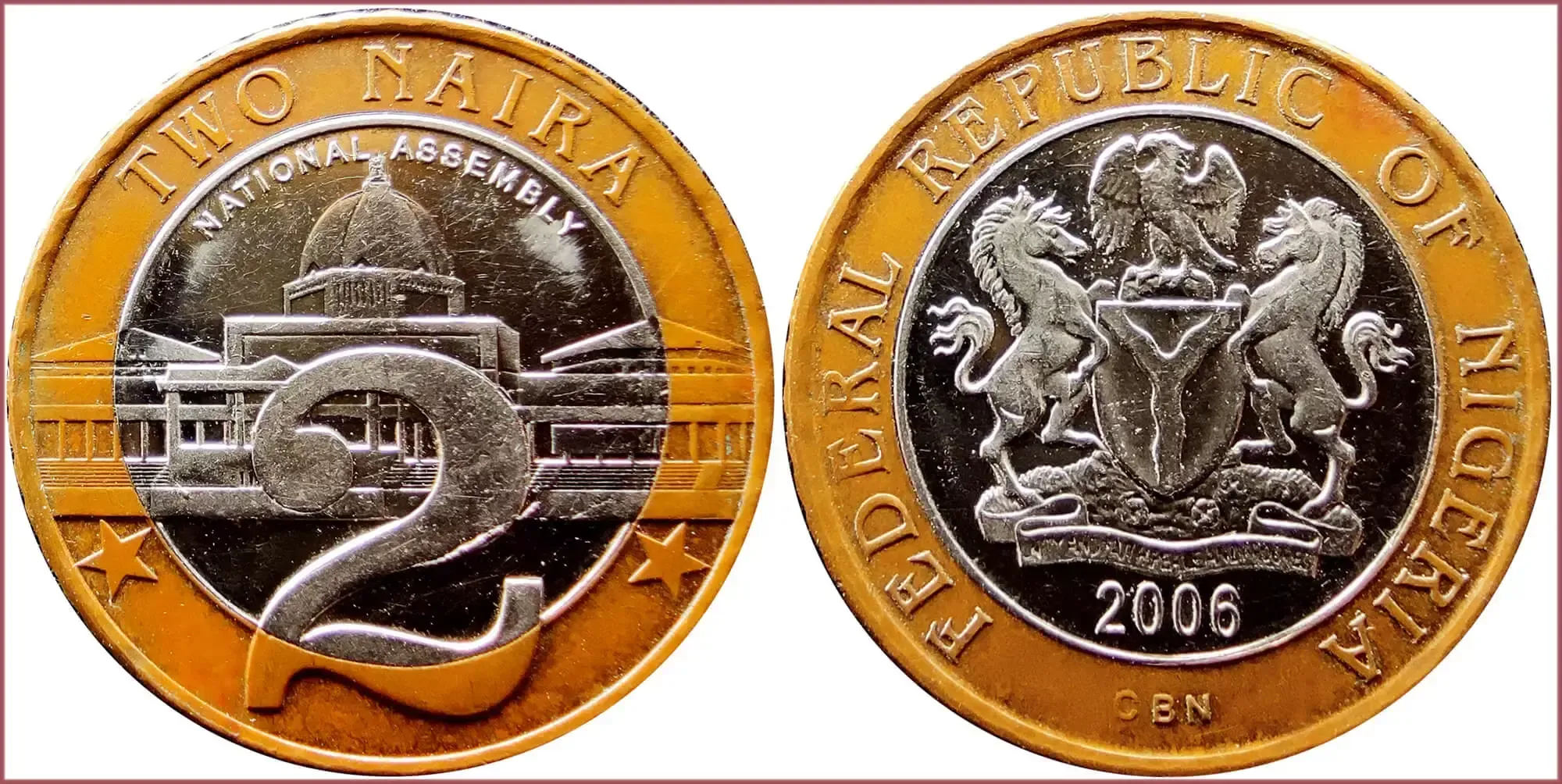NAIRA: COIN OF NIGERIA
2 naira, 2006: Federal Republic of Nigeria
2 - TWO NAIRA.
NATIONAL ASSEMBLY: National Assembly Complex in Abuja (capital of Nigeria) — the legislative building of the National Assembly, the legislative body for Federal Republic of Nigeria.
FEDERAL REPUBLIC OF NIGERIA.
Coat of arms of Nigeria consists of a black shield (represents Nigeria's fertile soil) with a wavy white pall, symbolizing the meeting of the Niger and Benue rivers. Two supporting horses represent dignity while eagle represents strength. Flowers at the base (Costus spectabilis, Nigeria's national flower) stand for the beauty of the nation. Nigeria's national motto before 1979 — "Unity and Faith".
CBN: Central Bank of Nigeria.
Royal Mint (Llantrisant, United Kingdom).
Mintage: 107.500.000.
- Bimetallic — stainless steel centre in copper plated steel ring: 26 mm - 7.54 g
- Reference price: 1.1$
COIN NAIRA — WHERE & WHEN (coins catalog: by names & emitents)
- FEDERAL REPUBLIC OF NIGERIA (1991-...): naira = 100 kobo
NAIRA as coin name.
Naira — official currency and coin of Nigeria, divided into 100 kobo.
The modern Nigerian currency was introduced in 1973. This year, the naira replaced the local pound. That is, Nigeria was the last on the African continent to get rid of such a British colonial legacy as the outdated twelve-point monetary system (the Nigerian pound, based on the metropolitan currency, consisted of 20 shillings, each of which in turn divided into 12 pence).
Only a few naira coins have been minted in the more than 50-year history of this currency: mostly it exists in the form of banknotes. In the 20th century, in addition to many different denominations of kobo, only three coins of Nigeria were issued: 1 circulating naira in 1991 and 1993, as well as commemorative silver 100 naira and gold 1000 naira (1994; 100 years of banking in Nigeria).
There is information that the name of the naira coin means "shiny, beautiful" in one of the local languages (by the way, several hundred languages and dialects are used in Nigeria). However, it was also possible to find data on the artificial formation of the term from the name of the state of Nigeria, more precisely, from the colonial expression — Niger-Area.











